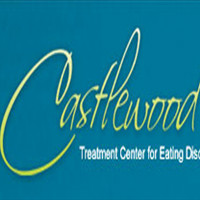Dissociative Disorders Symptoms
Breaks in Memory, Perception, Identity, or Consciousness
This article is a comprehensive look into the symptoms of dissociative disorders. The fourth edition, text revision of the Diagnostic and Statistical Manual of Mental Disorders defines dissociative disorders as a group of mental illnesses with the characteristic features being breaks in one's memory, perception, identity, or consciousness. The manual lists five types of dissociative disorders - dissociative amnesia, dissociative identity disorder, depersonalization disorder, dissociative fugue, and dissociative disorder not otherwise specified.
Symptoms of Dissociative Disorders
Signs commonly seen in dissociative disorders include the following:
• Amnesia of specific time periods, people, and events.
• Anxiety, depression, Panic attacks of symptoms of PTSDW.
• A blurred feeling of identity.
• A feeling of being separated from oneself.
• Belief that surrounding things and people are unreal and distorted.
• Dissociative Identity Disorder (DID) - The characteristic feature of DID or multiple personality disorder is switching to different or alternative identities when the person experiences stress or trauma. A person with DID often describes feeling as if various people or personalities live inside their body.
• Depersonalization Disorder - The feature of this disorder is an abrupt feeling of being outside oneself, and watching one's actions from a distance as if watching a movie. The person may also have a distorted sense of the shape and size of his body or of surrounding objects and people. For the person, time may progress at a slow pace. The world may seem unreal. These symptoms may be intermittent in duration or present and disappear over a number of years.
• Dissociative Fugue - A person with dissociative fugue may suddenly leave work or home and travel away with no recollection of their identity. The person may assume a new identity and life in their new location. Dissociative fugue usually has as abrupt onset as a result of traumatic events. The lifting of the dissociative fugue may cause the person to experience extreme disorientation and confusion.
• Dissociative Amnesia - The key feature of this disorder is experiencing one or more episodes of being unable to recall important personal information, which can't be explained by a neurological or physical condition. Conscious recall of disturbing events, people, or periods is completely missing from memory.
Please share this information about dissociative disorders symptoms so that more people can benefit from treatment. To learn more about the treatment of eating disorders with dissociative disorders please contact Castlewood Treatment Center at 1-888-822-8938 or visit our website at www.castlewoodtc.com
This article is a comprehensive look into the symptoms of dissociative disorders. The fourth edition, text revision of the Diagnostic and Statistical Manual of Mental Disorders defines dissociative disorders as a group of mental illnesses with the characteristic features being breaks in one's memory, perception, identity, or consciousness. The manual lists five types of dissociative disorders - dissociative amnesia, dissociative identity disorder, depersonalization disorder, dissociative fugue, and dissociative disorder not otherwise specified.
Symptoms of Dissociative Disorders
Signs commonly seen in dissociative disorders include the following:
• Amnesia of specific time periods, people, and events.
• Anxiety, depression, Panic attacks of symptoms of PTSDW.
• A blurred feeling of identity.
• A feeling of being separated from oneself.
• Belief that surrounding things and people are unreal and distorted.
• Dissociative Identity Disorder (DID) - The characteristic feature of DID or multiple personality disorder is switching to different or alternative identities when the person experiences stress or trauma. A person with DID often describes feeling as if various people or personalities live inside their body.
• Depersonalization Disorder - The feature of this disorder is an abrupt feeling of being outside oneself, and watching one's actions from a distance as if watching a movie. The person may also have a distorted sense of the shape and size of his body or of surrounding objects and people. For the person, time may progress at a slow pace. The world may seem unreal. These symptoms may be intermittent in duration or present and disappear over a number of years.
• Dissociative Fugue - A person with dissociative fugue may suddenly leave work or home and travel away with no recollection of their identity. The person may assume a new identity and life in their new location. Dissociative fugue usually has as abrupt onset as a result of traumatic events. The lifting of the dissociative fugue may cause the person to experience extreme disorientation and confusion.
• Dissociative Amnesia - The key feature of this disorder is experiencing one or more episodes of being unable to recall important personal information, which can't be explained by a neurological or physical condition. Conscious recall of disturbing events, people, or periods is completely missing from memory.
Please share this information about dissociative disorders symptoms so that more people can benefit from treatment. To learn more about the treatment of eating disorders with dissociative disorders please contact Castlewood Treatment Center at 1-888-822-8938 or visit our website at www.castlewoodtc.com
3/25/2011 7:50:20 PM

Written by Castlewood Treatment Center
Castlewood is a Residential Eating Disorder Treatment Center offering compassionate, professional treatment for anorexia nervosa, bulimia nervosa, compulsive over-eating and binge eating disorders.
View Full Profile
Comments
Be the first to leave a comment.
Why Mosquitoes Bite Some People and Not Others
Wellness Editor

The Eye Exam That Detects Signs of Alzheimer's Disease
Wellness Editor

How a Partner Impacts Our Health
Wellness Editor

Low-Dose Aspirin Linked to Internal Bleeding in the Skull
Wellness Editor

Can Nutritional Psychiatry Improve Your Health?
Wellness Editor

Hair Dye and Your Breast Cancer Risk
Wellness Editor

5 Ways to Lower Your Blood Pressure Without Medication
Wellness Editor

5 Ways to Get the Most Out of Your Doctor Appointments
Dr. Dario Herrera
